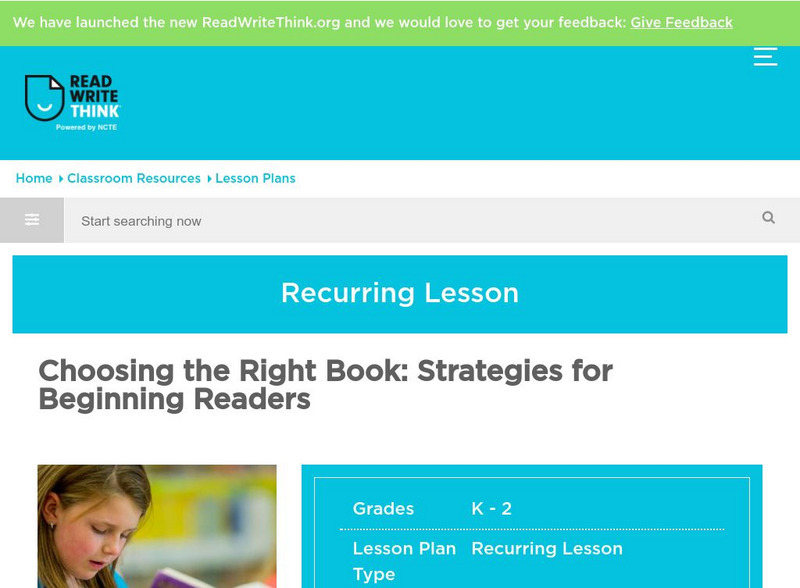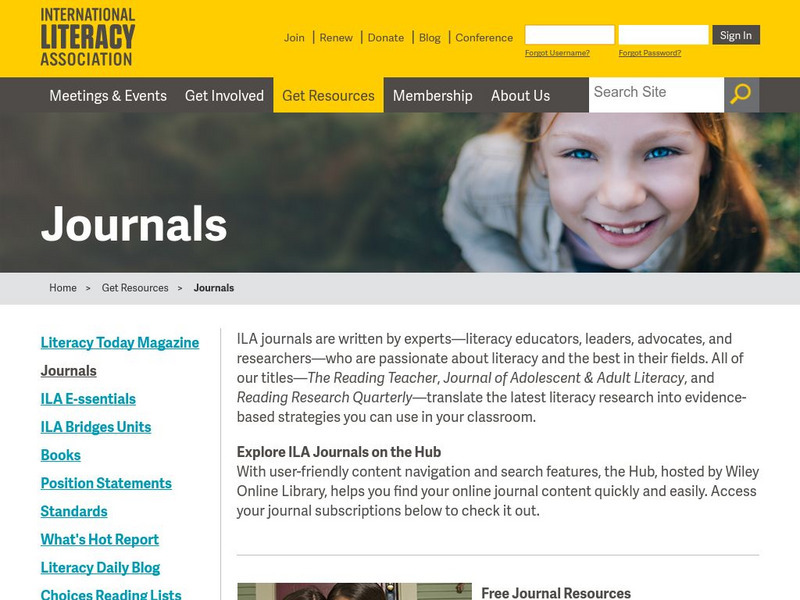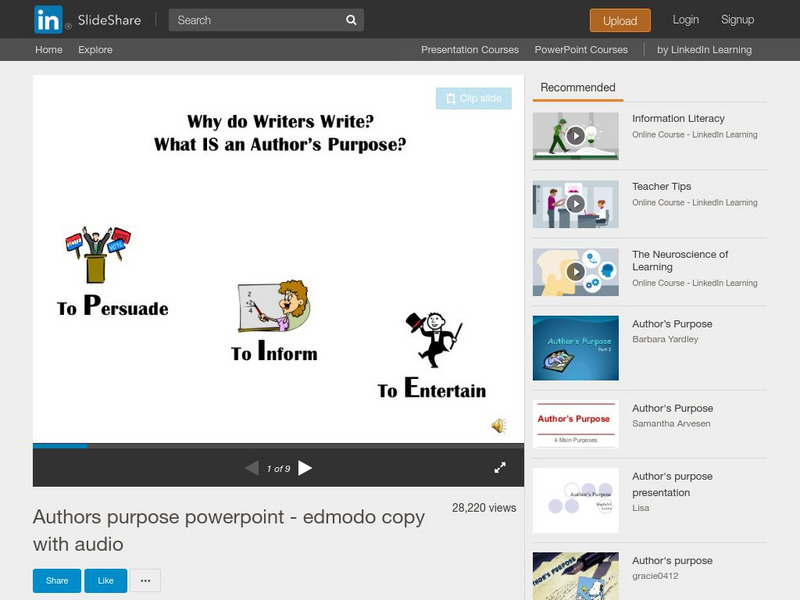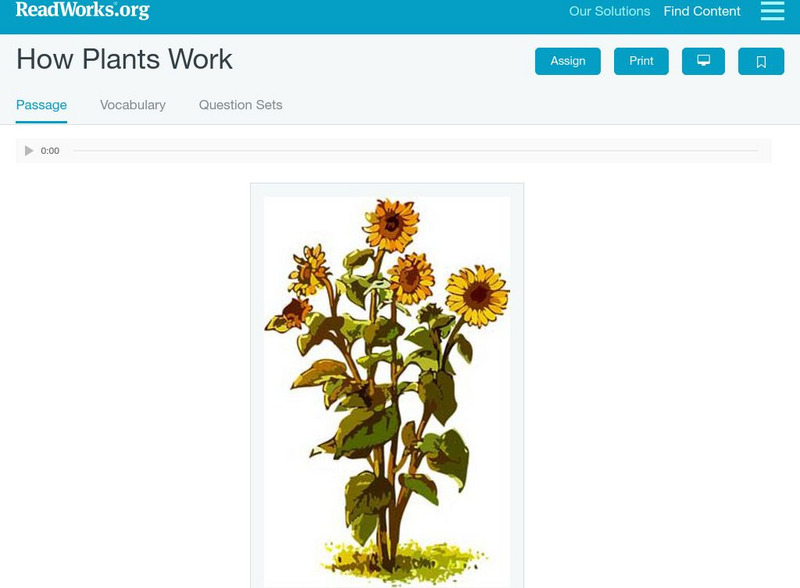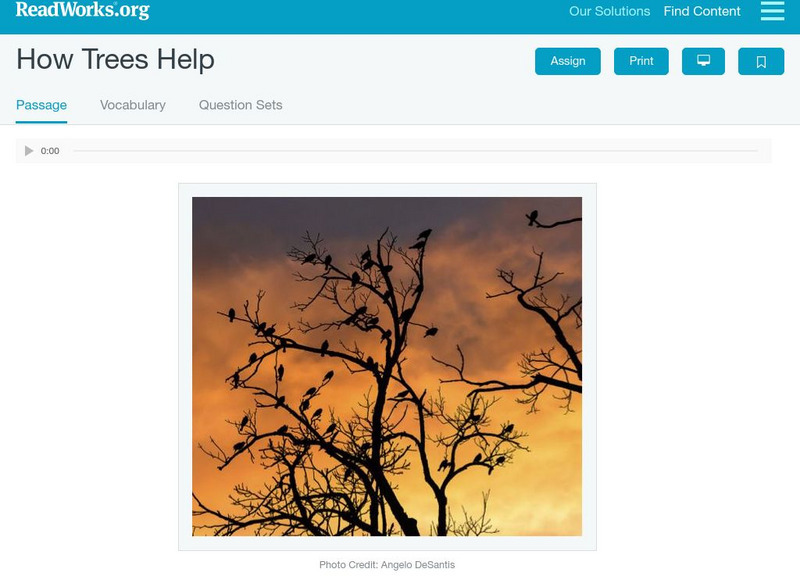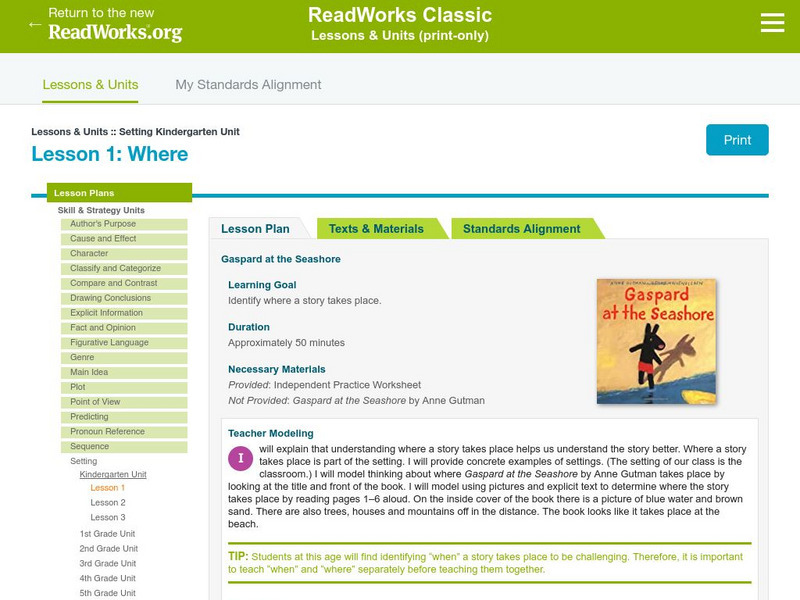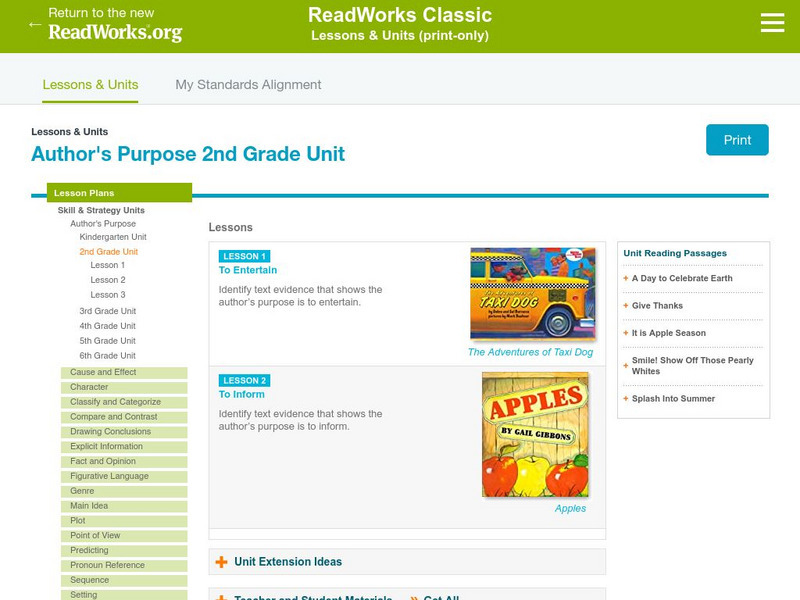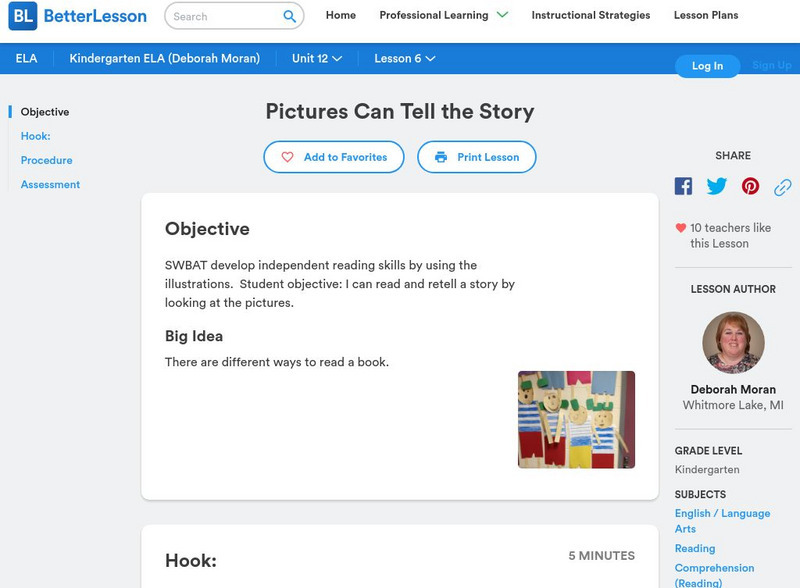Better Lesson
Better Lesson: Pictures and Text Work Together Too!
The class will read the informational text "Together They Were Better". As the teacher reads the book aloud, she/he will use the illustrations from each page to give young scholars clues as to the text on the page, helping them to see...
CPALMS
Cpalms: What's So Great About Kevin Henkes?
[Free Registration/Login Required] In this lesson, learners will serve as researchers of author/illustrator Kevin Henkes. With prompting, students will read three books by Kevin Henkes. They will recall information from the text to...
Better Lesson
Better Lesson: Work Out Together
Students will read an article and determine the author's point and identify the reasons the author gives to support his or her point. This lesson requires analysis by the students and a great deal of higher-order thinking as they...
CPALMS
Cpalms: What Do You Do With a Tail Like This?
[Free Registration/Login Required] In this lesson, students will use What Do You Do With A Tail Like This? by Steve Jenkins and Robin Page to identify the main topic and key details using the illustrations and text. Students will work to...
Reading Rockets
Reading Rockets: Using Collaborative Strategic Reading
In this article, the Collaborative Strategic Reading (CSR) technique is explained, along with research to support the use. The technique teaches students to use comprehension strategies, while working cooperatively, as they engage in the...
CPALMS
Cpalms: Wild About Authors and Illustrators
[Free Registration/Login Required] In this instructional activity, students learn about the roles of authors and illustrators through games and book-writing. Students will have an opportunity to act out the roles of illustrators and...
Writing Fix
Writing Fix: If You Give a Student an Animal
In this lesson plan, the book If You Give a Moose a Muffin, written by Laura Numeroff, is used as a mentor text for word choice. The content focus of the activity is to teach the students to take ownership of scientific and descriptive...
Curated OER
Mc Graw Hill: Part 1: Reading Literature: Use Illustrations and Details
Learn how drawing characters, settings, and events can help with reading comprehension.
Other
Laus Dnet: Grade 1 Word Lesson Plan (Stone Soup) Pdf
In this lesson, students use Stone Soup by Ann McGovern to generate word lists and use patterned text to assist with descriptive writing. Gives links to step sheets and samples for creating a table , a template for shared writing, a...
ReadWriteThink
Read Write Think: Choosing the Right Book: Strategies for Beginning Readers
Students make purposeful choices for their reading materials, thinking about their reasons for reading a book and using strategies to match books to their abilities.
International Reading Association
Reading Online: Children's Creating Artists' Books
Do you struggle with reluctant readers? Here are great ideas about integrating reading and visual creativity. This is a effective way to use student interest by creating an artist's book project.
ReadWriteThink
Read Write Think: Diagram It! Identifying, Comparing & Writing About Non Fiction
Introduce your students to the different types of non-fiction such as biographies, biographies, and informative books. Students will use graphic organizers, peer interaction, and hands-on experiences to further understanding of this lesson.
Tom Richey
Slide Share: Why Do Writers Write?
A slide show with nine slides explaining the author's purpose to persuade, inform, or entertain.
Read Works
Read Works: How Plants Work
[Free Registration/Login Required] An informational text about the different parts of a plant: the leaves, stem, roots, and flowers. A question sheet is available to help students build skills in reading comprehension.
Read Works
Read Works: Stop the Rock!
[Free Registration/Login Required] A literary text about animals that work together to help each other. A question sheet is available to help students build skills in reading comprehension.
Read Works
Read Works: How Trees Help
[Free Registration/Login Required] An informational text about trees and the way they help people. A question sheet is available to help students build skills in reading comprehension.
Utah Education Network
Uen: 1st Grade Act. 24: Interactive Writing
In this lesson, learners will listen to nonfiction books about items that sink and float. Students will participate in filling in words to fill in a teacher-created chart that is connected to the information. Learners will then write a...
Read Works
Read Works: Grade 2: Three Lesson Unit: Genre
[Free Registration/Login Required] A series of three lesson plans designed to teach students to compare and contrast fiction and non-fiction, identify the characteristics of non-fiction, and use guide words to locate topics in an...
Read Works
Read Works: Setting Kindergarten Unit: Where
[Free Registration/Login Required] Use the book Gaspard at the Seashore by Anne Gutman to teach clues students can use to determine where a story takes place. The book must be provided by the teacher, but downloadable worksheets for...
Read Works
Read Works: Grade 2: Three Lesson Unit: Author's Purpose
[Free Registration/Login Required] A series of three lesson plans designed to teach students to identify author's purpose including to entertain, to inform, and to persuade. Lessons are based on the books The Adventures of Taxi Dog by...
Writing Fix
Writing Fix: Some Animals Don't Do That!
In this lesson plan, Dogs Don't Wear Sneakers by Laura Numeroff, is used as a mentor text for to highlight the trait of idea development. The content focus of the lesson is to highlight what topics cannot do. Students generate a list of...
Other
Education Galaxy: Topic, Illustrations and Predictions
Practice making predictions about an informational text by looking at the title and pictures. Play in study or game mode.
Curated OER
Google for Education: Children and Technology: Collaborative Illustrated Story
Learners collaboratively create an illustrated story as a team by using Google Presentation.
Better Lesson
Better Lesson: Pictures Can Tell the Story
The students will develop independent reading skills by using the illustrations. The teacher will read a selection of books and ask students to tell what they see in the book. Comments will lead to the conclusion that pictures tell us...









